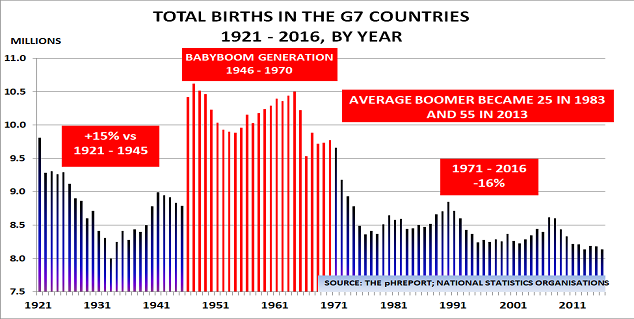
“Average UK wages in 2022 could still be lower than in 2008”
UK Office for Budget Responsibility
While Western stock markets boom under the influence of central bank money-printing, wages for ordinary people are not doing so well. So it is no wonder that Populism is rising, as voters worry their children will be worse off than themselves at a similar age.
The chart above is the key to the story. It shows births in the G7 countries (Canada, France, Germany, Italy, Japan, UK, USA) since 1921. They are important as until recently, they represented around 50% of the global economy. Equally important is the fact that consumer spending represents 60% – 70% of total GDP in each country.
As the chart shows, the absolute number of consumers saw a massive boost during what became known as the BabyBoom after the end of World War 2:
Today’s dominant economic theories were also developed during the BabyBoom period, as academics tried to understand the major changes that were taking place in the economy:
Today’s problem is that although both theories appeared to fit the facts when written, they were wrong.
We cannot blame them, as nobody during the 1960s realized the extraordinary nature of the BabyBoom. The word “BabyBoom” was only invented after it had finished, in 1970, according to the Oxford English Dictionary.









Leave A Comment